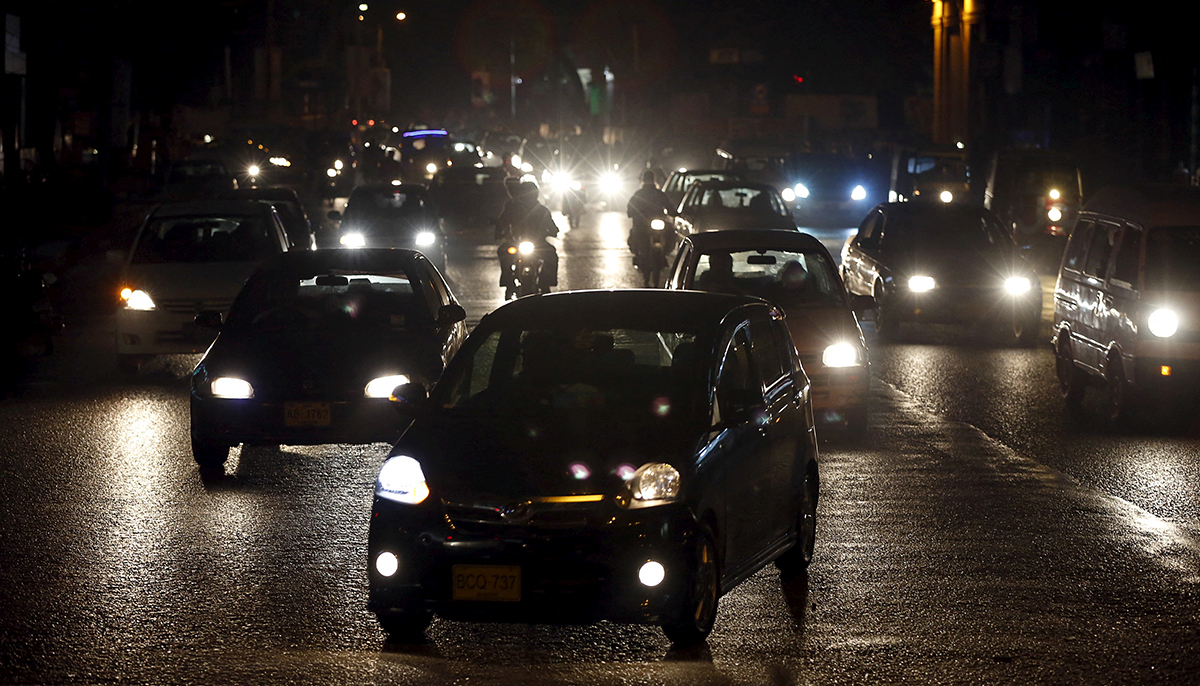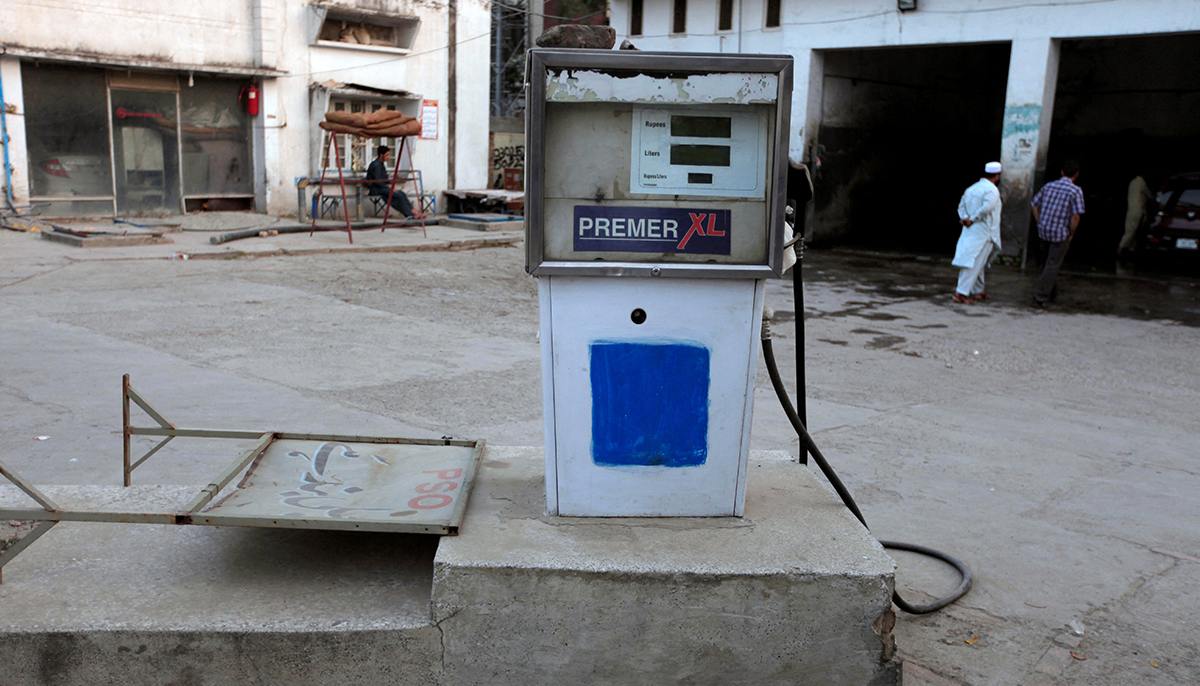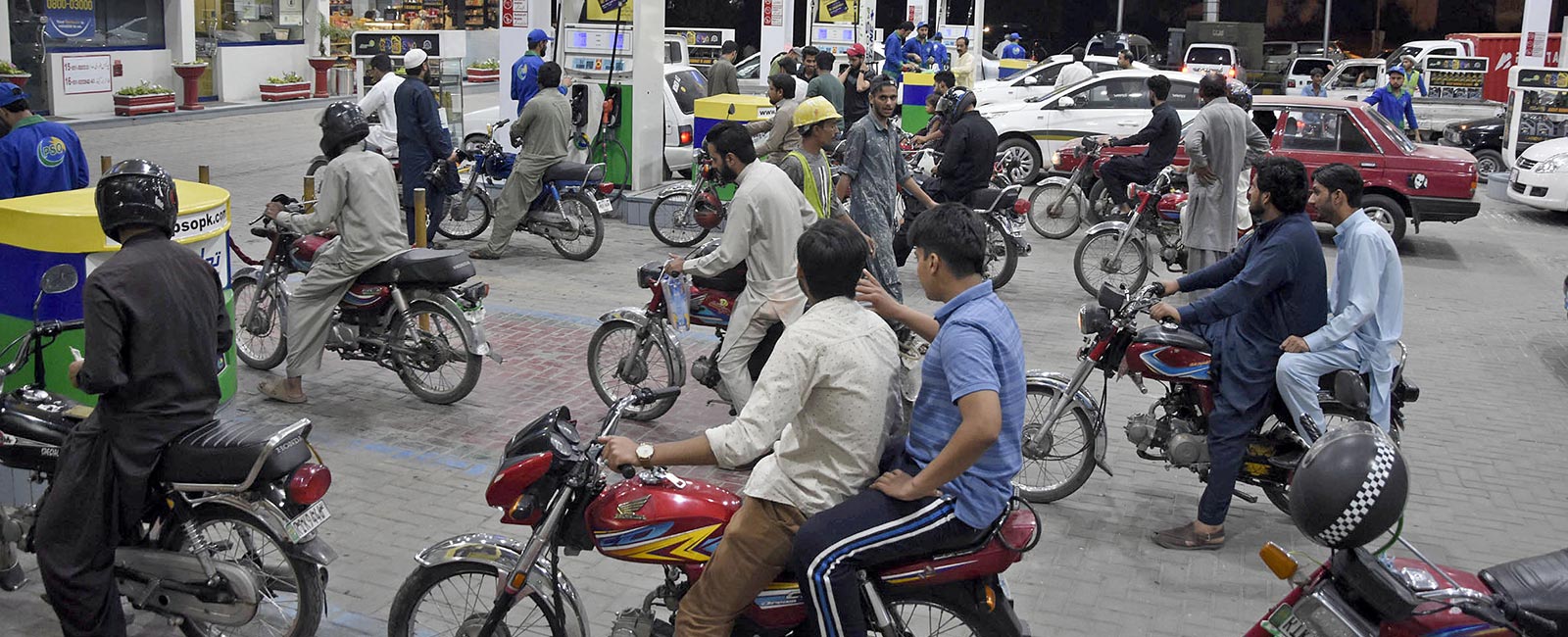Experts explain petrol subsidies' adverse effects on Pakistan's economy
Finance Minister Miftah Ismail had stated the increase in petroleum prices was necessary as govt could not bear the subsidy

KARACHI: In order to revive the stalled International Monetary Fund (IMF) programme, the Shehbaz Sharif-led government on Thursday announced a Rs30 hike in petroleum prices.
Finance Minister Miftah Ismail stated that the increase in petroleum prices was necessary as the government could not bear the subsidy that was announced by the previous government.
In a press conference, the finance minister said the government has decided to hike the price of petrol, diesel, kerosene oil, and light diesel by Rs30, effective from May 27.
To understand whether the hike was needed or not, Geo.tv reached out to analysts for further understanding.
'It was damaging fiscal management'
Business journalist Mehtab Haider believes that the withdrawal of subsidies was very important for Pakistan as it was damaging the country's fiscal management.
Speaking to Geo.tv, Haider said that the IMF had clearly conveyed to Islamabad that it would not revive its much-needed programme for Pakistan if the government failed to remove the subsidies.
"Even right now, the government has only partially accepted the conditions laid forth by the Fund. So, it will be a task for the government to convince the international body to revive the programme because, without it, the risk of Pakistan defaulting will continue to loom as the foreign currency reserves are plummeting," he said, adding that the subsidies were the reason the country was witnessing mounting pressure on the Pakistani rupee against the US dollar.
He admitted that the government had taken a "tough decision" but it did not have "another option to resuscitate the economy".
'Today's subsidy is tomorrow's debt'
Alpha Beta Core CEO Khurram Schehzad told Geo.tv that heavy vehicles — 1,300cc, 3,000cc, 4,000cc — have huge fuel tanks and are benefiting from the subsidies imposed on petroleum products.
"It will not matter to owners of heavy vehicles even if the prices of petroleum products hit Rs250 per litre, but a person who uses a motorcycle or public transport to commute will be affected because of it," he said.
The government should come up with a mechanism — either through the Benazir Income Support Programme (BISP) or prepaid card — to provide relief to the lower-income groups, he said.
"The prices should be increased and the abolishment of subsidies is necessary as today's subsidy is tomorrow's debt and inflation, which ultimately have an adverse effect on the economy," Schehzad said.

He further suggested that targeted subsidies should be adopted, while the government could adopt other measures — such as closing markets, saving energy, and introducing work from home — to alleviate the situation.
The economic analyst added that targeted subsidies would help those in need and it would also not burden the government.
'Fixed for political reasons'
Economic expert and banker Syed Ali Sajjad said due to a stall in the IMF programme, Pakistan was approaching a situation where it might default, and the government's decision to hike the petrol price was a step in the right direction.
"It's not just $900 million from IMF. Once the Fund approves that, other lenders will also provide loans to Pakistan. Thus, for the revival of the Fund's programme, subsidies had to be removed," Sajjad told Geo.tv.
He said prices were "fixed for political reasons" despite the rates of oil jumping to historic highs in the international markets, adding that Pakistan's economy was a "casino economy" as some people were using heavy vehicles and did not care about the rising prices, but at the same time, the majority was severely affected by price hikes.
"Therefore, this demand compression was necessary [...] a person who would drive a car for 100kms will reconsider it and use it for 70kms, which will also help us improve our import bill," he said.
He hoped that with the removal of the subsidy, the current account would move towards stability.
'Subsidies aren’t in favour of country'
While speaking to Geo.tv, Pakistan-Kuwait Investment Company Head of Research Samiullah Tariq said subsidies "weren't in favour of the country".
He noted that subsidies jeopardise the supply chain, the amount of blanket subsidy is huge, and causing a large fiscal deficit which is pushing interest rates up.
Tariq added that the amount utilised for the blanket subsidy could better be used for the targeted subsidy.

"The subsidy amount is paid from borrowing and has to be paid back with interest."
'Major requirement'
Arif Habib Limited Head of Research Tahir Abbas told Geo.tv since Pakistan imports 75% of its energy needs, it was not in the country's favour to continue the petrol subsidies.
The difference between the purchase and the selling side was getting wider each day, which directly hits the government on the fiscal side, the economic analyst said.
"This removal of the subsidies was also a major requirement of the IMF," he said, welcoming the government's decision to raise prices.





